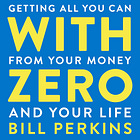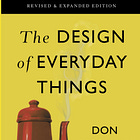Gautam Baid's The Joys of Compounding presents investing as both a financial discipline and a philosophy for life, arguing that the principle of compounding extends far beyond money to encompass knowledge, relationships, and personal growth. The Indian-American fund manager weaves together a holistic approach to building wealth and meaning over time.
Baid opens by explaining how he discovered investing as a teenager in India, initially drawn by the promise of quick profits. Early losses taught him that successful investing requires patience, discipline, and a long-term perspective. He describes watching his grandfather, a simple schoolteacher, accumulate substantial wealth through decades of patient investing in quality companies, never selling despite market volatility. This example shaped Baid's understanding that time, not timing, is the investor's greatest advantage.
The book emphasizes the power of starting early, illustrating this with the classic example of two investors: one who saves $2,000 annually from age 19 to 26, then stops, versus another who saves $2,000 annually from age 27 to 65. Despite contributing for nearly four decades, the second investor accumulates less wealth because they missed the crucial early years when compounding has the most time to work. Baid calls this the "8th wonder of the world", referencing Einstein's alleged quote about compound interest.
Baid presents investing as a game of avoiding mistakes rather than hitting home runs. He shares how studying the investment disasters of others taught him more than success stories. When dot-com companies with no profits traded at astronomical valuations in 2000, he watched seasoned investors abandon fundamental analysis in favour of momentum trading. Those who maintained discipline and avoided speculative excesses preserved capital that could be deployed when quality companies became available at reasonable prices.
The author introduces the concept of "compounding knowledge," arguing that continuous learning creates exponential advantages over time. He describes his practice of reading annual reports, investment letters, and biographies of successful business leaders, noting how each piece of knowledge builds upon previous learning. Warren Buffett's recommendation to read 500 pages daily isn't about consuming information but about building a latticework of mental models that improve decision-making across all areas of life.
Baid explores the psychological challenges of long-term investing, particularly the difficulty of remaining patient when others appear to be getting rich quickly. During the cryptocurrency boom, he watched friends abandon diversified portfolios to chase speculative gains. While some made quick profits, most eventually lost money when prices crashed. He argues that sustainable wealth comes from boring consistency rather than exciting speculation.
The book extends compounding principles to relationships and character development. Baid describes how small acts of kindness and integrity compound over time, building trust and reputation that become invaluable assets. He shares how maintaining honest relationships with business partners and clients created opportunities that wouldn't have existed otherwise.
Baid concludes that the greatest joy of compounding lies not in the financial results but in the process itself—the steady accumulation of knowledge, wisdom, and meaningful relationships over time. Those who embrace compounding in all aspects of life, from learning to investing to personal relationships, discover that small, consistent actions sustained over long periods create extraordinary outcomes that seem impossible when viewed from the starting point.
Get the book : USA | India | UK
Check out the previous books we’ve covered:








